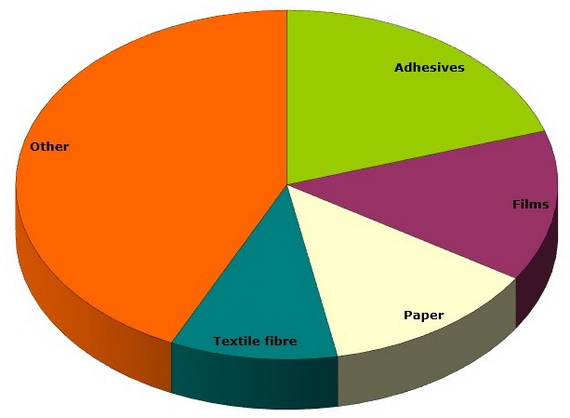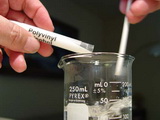Polyvinyl alcohols (PVOH or PVA) comprise a group of water-soluble synthetic polymers employed for various applications, including use as a polymerization aid and production of textile yarns (textile sizing agents), paper, adhesives, optical-grade films, packaging, PVB/PVF resins (as intermediate), ceramic binders, and many other products.
However, PVA application demonstrates big inter-regional, temporal and market-related variability. For example, the use of PVA in the manufacture of PVB resins in Europe, which is a major PVA application segment in this region, in future, may face strong competition from new applications, like production of water-soluble biodegradable thermoplastic polymers.
Main polyvinyl alcohol end-uses

PVA is characterized by a wide range of products and grades with various polymerization/hydrolysis depths, showing a degree of removal of the acetate groups from the polyvinyl acetate raw material, and molecular weights, expressed in different solution viscosities. Such high level of versatility provides a possibility to adjust a PVA for specific needs of a concrete customer, thus focusing on special niche segments of different markets. This opens up marketing possibilities and gives benefits, but it may also have certain limitations and pose threats, since manufacturers should demonstrate a capacity to correctly understand the market trends, target attractive customer groups, as well as accurately perform market formative research and segmentation analysis, which might be problematic in current uncertain economic situation. To this extent, versatility of chemical products, like PVA, might become an element of high risk since it depends from increased number of variables and factors.
More information on the PVA market can be found in the insightful research report “Polyvinyl Alcohol (PVA) 2015 World Market Outlook and Forecast up to 2019”.
